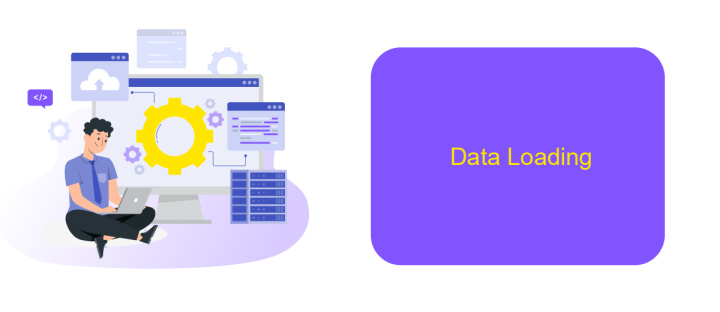Data ETL Tools
Data ETL (Extract, Transform, Load) tools are essential for managing and optimizing the flow of data within organizations. These tools facilitate the seamless extraction of data from various sources, its transformation into a suitable format, and its loading into target systems. This article explores the key features, benefits, and popular options available in the market for effective data management.
Introduction
Data ETL (Extract, Transform, Load) tools are essential for modern data management, enabling organizations to efficiently process and analyze vast amounts of data. These tools automate the extraction of data from various sources, transform it into a usable format, and load it into a target system, such as a data warehouse or data lake.
- Extract: Gather data from multiple sources, including databases, APIs, and flat files.
- Transform: Clean, aggregate, and format data to meet specific requirements.
- Load: Transfer the transformed data into the target system for analysis and reporting.
In recent years, services like ApiX-Drive have emerged to simplify the integration process. ApiX-Drive allows users to connect various applications and automate data workflows without extensive coding knowledge. This significantly reduces the complexity and time required for setting up data pipelines, making it an invaluable tool for businesses looking to optimize their data management strategies.
Data Extraction

Data extraction is the initial step in the ETL (Extract, Transform, Load) process, where raw data is collected from various sources. These sources can include databases, cloud storage, APIs, and even flat files. The objective is to gather data in its most granular form to ensure that subsequent steps in the ETL pipeline have the most accurate and comprehensive data available. Effective data extraction is crucial as it lays the foundation for the quality and reliability of the entire ETL process.
One of the challenges in data extraction is dealing with disparate data formats and sources. Tools like ApiX-Drive can simplify this process by providing seamless integration capabilities. ApiX-Drive allows users to connect various applications and automate data extraction without requiring extensive coding knowledge. By using such tools, businesses can streamline their data collection processes, ensuring that data is extracted efficiently and accurately, ready for transformation and loading into the desired destination.
Data Transformation

Data transformation is a critical phase in the ETL process, where raw data is converted into a more suitable format for analysis and reporting. This step involves several operations such as filtering, aggregating, and enriching the data to meet business requirements and ensure data quality.
- Filtering: This step involves removing unnecessary or redundant data to focus on relevant information.
- Aggregating: Data is summarized or combined to provide a higher-level view, often through operations like sum, average, or count.
- Enriching: Additional data is integrated to enhance the existing dataset, which can include adding metadata or linking to external data sources.
To streamline data transformation, tools like ApiX-Drive can be invaluable. ApiX-Drive allows seamless integration between various data sources and applications, simplifying the transformation process. With its user-friendly interface and automation capabilities, businesses can efficiently manage their data workflows, ensuring that transformed data is accurate and ready for analysis.
Data Loading

Data loading is a crucial step in the ETL (Extract, Transform, Load) process, where transformed data is loaded into the final target database, data warehouse, or data lake. This step ensures that the data is available for analysis, reporting, and further processing.
Efficient data loading requires careful planning and execution to minimize downtime and ensure data integrity. It's essential to choose the right tools and technologies that can handle the volume and velocity of your data. One such tool is ApiX-Drive, which offers seamless integration capabilities to automate data loading from various sources.
- Automated data synchronization
- Real-time data updates
- Support for multiple data sources
- Scalability to handle large datasets
By leveraging tools like ApiX-Drive, organizations can streamline their data loading processes, reducing manual intervention and potential errors. This not only saves time but also enhances the reliability and accuracy of the data, enabling better decision-making and insights.


Conclusion
In conclusion, Data ETL tools play a crucial role in modern data management by streamlining the extraction, transformation, and loading of data across various platforms. These tools not only enhance the efficiency and accuracy of data processing but also enable businesses to derive actionable insights from their data. By automating complex data workflows, ETL tools help organizations save time and resources, allowing them to focus on strategic decision-making and innovation.
Furthermore, the integration capabilities of ETL tools, such as those provided by ApiX-Drive, offer seamless connectivity between disparate systems and applications. This ensures that data flows smoothly and consistently across the enterprise, reducing the risk of errors and data silos. As businesses continue to evolve and generate more data, the importance of robust and versatile ETL solutions will only grow, making them indispensable for achieving data-driven success.
FAQ
What is ETL in data processing?
Why is ETL important for businesses?
What are the common challenges in ETL processes?
How can I automate my ETL processes?
What should I look for in an ETL tool?
Time is the most valuable resource in today's business realities. By eliminating the routine from work processes, you will get more opportunities to implement the most daring plans and ideas. Choose – you can continue to waste time, money and nerves on inefficient solutions, or you can use ApiX-Drive, automating work processes and achieving results with minimal investment of money, effort and human resources.

